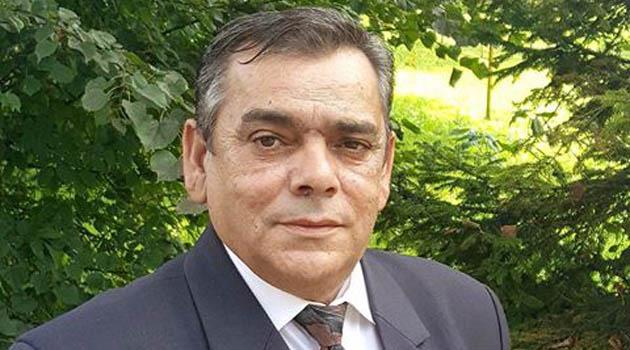Czech regional elections: Roma Democratic Party says job opportunities needed

On Friday, 7 October and Saturday, 8 October, citizens of the Czech Republic will vote for regional councilors and in some regions also for the one-third of the Czech Senate whose electoral terms are expiring. Political parties have also sent several candidates to the regional elections who are of Romani nationality.
This year, political movements and parties have nominated a total of 11 880 candidates for the post of regional councilor, 576 more than in the 2012 elections. News server Romea.cz estimates that as many as 40 Romani people are running for the regional councils this year, and we have reached out to some of them with a request for an interview.
Jan Maľar, candidate for the Roma Democratic Party
The Roma Democratic Party (Romská demokratická strana – RDS) has put together a candidate list in three regions where 23 candidates are running total, four in Central Bohemia, four in Liberec, and 15 in Moravia-Silesia. The RDS leading candidate in Moravia-Silesia, where the number of parties fielding candidates is most numerous, is a technical services worker, 60-year-old Jan Maľar from Ostrava-Kunčičky.
Q: Why do you believe so many Romani people still don’t vote?
A: That fact, unfortunately, is rather worrisome, it’s a shame that Romani people don’t trust us enough to come vote and cast their ballots for the people they sympathize with. One would like to do something for the Roma in our region, but if they don’t vote, that will be difficult, and we have to say that upfront. It’s about awareness of the significance of elections and about continually reminding voters of the importance of casting a vote.
Q: Is it necessary to have Romani councilors at the regional level?
A: We need Roma on the council, that’s not up for debate. It would be ideal if we had two or three on each council. However, even one Romani councilor is important to a region. It’s necessary to improve Romani living standards, to create job opportunities for the unemployed, to contribute toward increasing Romani educational attainment. I consider education to be crucial. I am constantly asking young people what they will do when they complete mandatory primary school, where they will go to study further, whether they have chosen secondary school or a trade. I am actually disappointed by the current state of affairs and I hope educational attainment will increase in our region in the future. That is one of the priorities of the Roma Democratic Party. On the other hand, if we don’t give young people jobs, even education won’t aid them. Both must go hand in hand.
Q: Is it worth it, in your view, for a Romani political party to exist? Isn’t it easier for a beginning Romani politician to be part of an already-functioning, bigger political party?
A: For Romani people, as a minority, it is necessary that they also turn up on the candidate lists of the bigger political parties such as the Civic Democratic Party (ODS) or the Czech Social Democratic Party (ČSSD). Even though it might seem that a small party, and a Romani one to boot, is unnecessary to the citizens, the contrary is the case. Policy is made about us, but unfortunately without us. It’s still the same problem. We should be present during those negotiations. It’s time for Romani people to take up functions in the local administrations, at the municipal authority, in regional politics, everywhere, in short. If the ANO party gets into power, which it will, I think the level of everything will decline for the citizens. In the Moravian-Silesian Region, Romani people are on the edge of poverty, job opportunties are not being created as they should. ANO, just like the Roma Democratic Party, prefers employment to the passive receipt of welfare, but we believe it’s not just about reducing benefits. It’s necessary to give people opportunities to work. If somebody like [Czech Finance Minister] Babiš (ANO) seeks to reduce benefits for socially vulnerable citizens, that will have a fatal impact on many Romani people. How can we raise the level of the population and the entire region when the local labor market is so miserable? It is necessary to realize that it’s not just Romani people who are worrying about poverty. When, as a retiree, you receive a pension worth more than CZK 9 000 (EUR 333) and you are playing almost CZK 8 000 (EUR 300) for housing, what do you have left over? People living with disabilities are in a similar situation, they, too, are depending on the welfare system, and in their cases it’s not set up well either.
Q: How do you assess the work of the current leadership of the City of Ostrava?
A: I assess the city’s work positively. They meet us halfway, during the summer they created seasonal jobs, unemployment decreased a bit. However, in the winter the labor market changes, it’s the same everywhere, there are simply not enough jobs. Some people have collaborated with us and there are results, others haven’t. For example in the municipal departments of Ostrava-Hrabůvce or Ostrava-Jih, it’s precarious. It’s known that bribes are paid for housing there, and overall it can be assessed as rather bad.
Q: How do you believe the regional elections will turn out this year? How do you assess your chance of success?
A: There’s always a chance of success. If Romani people come vote this year, I thnk one or two of us can have a shot at success. If not, we will attempt it during the next elections and we will keep running candidates until Romani people comprehend the importance of voting.
Q: If you win, what would you do first as a regional leader?
A: First and foremost, we would strive to increase citizens’ safety. The Roma Democratic Party wants to begin a dialogue with representatives of towns and villages to gradually resolve the situation in the socially excluded localities. We would like negotiate about the law on social enterprises and social housing, among others. It is necessary to focus on crime prevention. The Roma Democratic Party wants to primarily reach out to young Roma. They need to be more active and create values for the next generation.
Q: What is your opinion of the refugee crisis?
A: Romani people are also concerned about this issue, but that’s naturally all about the media image that is being regularly created and is negative toward refugees. It is necessary to adopt quotas, some refugees must be accepted here. If people come from a war zone and are fleeing armed conflict because they are afraid for their lives and the lives of their loved ones, that changes the situation and Europe must respond to that somehow.
